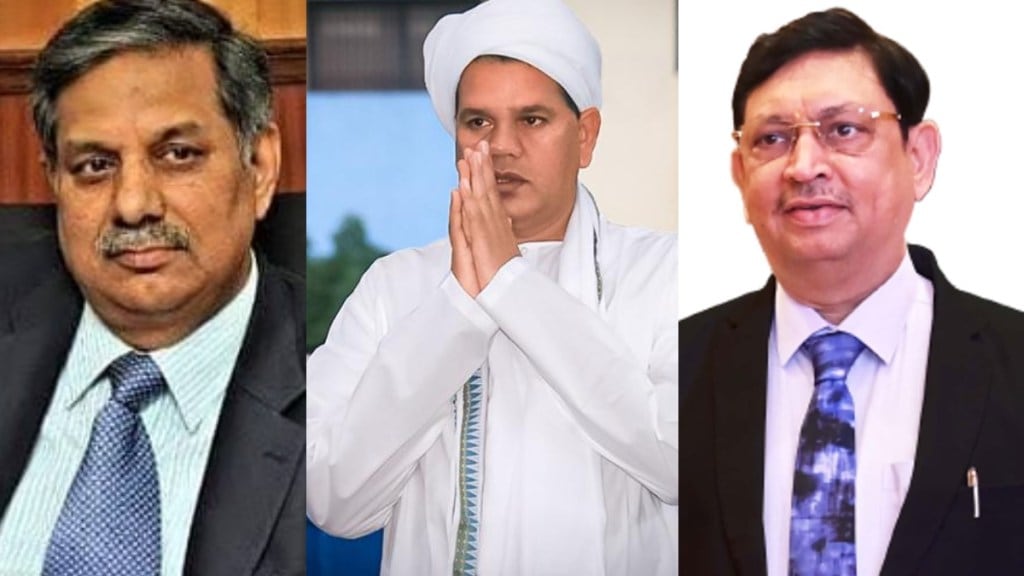The Central Bureau of Investigation (CBI) has exposed what it calls one of the largest medical college scams in India, implicating senior government officials, educationists, middlemen and a self-styled godman.
The scam involves the manipulation of regulatory approvals for substandard medical colleges across multiple states, including Chhattisgarh, Madhya Pradesh, Rajasthan, Delhi, Uttar Pradesh and Karnataka.
Key accused and modus operandi
The CBI’s FIR lists 35 individuals, including DP Singh, former UGC Chairman and current TISS Chancellor, self-styled godman Rawatpura Sarkar, also known as Ravishankar Maharaj, Suresh Singh Bhadoria of Indore’s Index Medical College, and several senior officials and intermediaries.
Techniques used: Dummy faculty, fake inspections, falsified patient records and leaked confidential files were some of the techniques which were used as part of the scam. Bribes were routed through hawala and banking channels to secure illegal regulatory approvals.
Government involvement
Officials from the Ministry of Health and the National Medical Commission (NMC) allegedly disclosed inspection schedules and internal notes to college representatives in exchange for bribes.
How was the scam exposed?
The probe began at the Shri Rawatpura Sarkar Institute of Medical Sciences and Research (SRIMSR) in Raipur, where the CBI caught six individuals, including three doctors, accepting a Rs 55 lakh bribe for issuing a favourable inspection report.
Raids were conducted at more than 40 locations across six states. The investigation quickly expanded and included over 40 medical colleges suspected of obtaining recognition through bribery and falsified records.
Role of Rawatpura Sarkar (The Godman)
Rawatpura Sarkar, who is well-connected with politicians and bureaucrats, is also reportedly involved in the scam. His pictures with several IAS and IPS officers and politicians are all over social media.
His name in the FIR hints at the intersection of religious influence and regulatory corruption in the education sector.
This, however, is not the first time he has faced such accusations. His trust has been named in land encroachment, running unapproved colleges, and other irregularities, though few cases reached prosecution until now.
Parallel operations and Southern India link
Index Medical College Nexus:
In Indore, officials allegedly used ghost faculty, forged attendance, and fake experience certificates to deceive NMC assessors. The network, led by Bhadoria and Rawatpura Sarkar, reportedly charged Rs 3–5 crore from private colleges for guaranteed approvals.
Southern India Operations:
Agents in Andhra Pradesh, Telangana, and other southern states arranged dummy faculty and fake patients for inspections. Large bribes—sometimes exceeding Rs 4 crore—were routed through official banking channels to secure clearances for institutions like Father Colombo Institute of Medical Sciences in Warangal.
Officials in New Delhi allegedly took photos of internal regulatory files and shared them via WhatsApp with agents and college management, which compromised the inspection process.
Key middlemen
Jitu Lal Meena, a former member of the Medical Assessment and Rating Board (MARB), is identified as a central figure in orchestrating bribes and leaking information. Some illicit funds were reportedly used for personal projects, such as constructing a temple in Rajasthan.
Legal action and current status
The CBI has registered cases under multiple sections of the Bharatiya Nyaya Sanhita (BNS) and the Prevention of Corruption Act. So far, only one person, director Atul Tiwari, has been arrested, and investigations are ongoing.
The scam has raised serious concerns about the integrity of medical education regulation in India, with the CBI stating that such acts undermine public health standards and the credibility of the regulatory framework.


